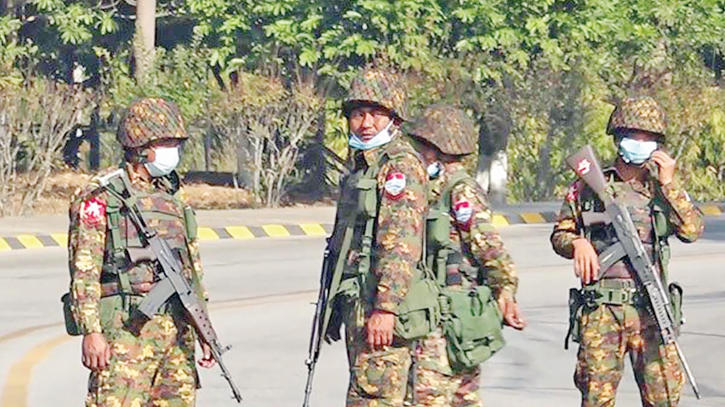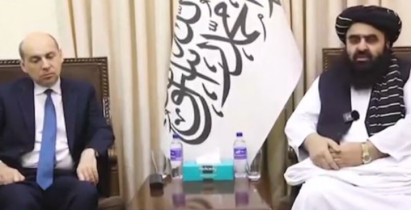
Photo : Collected
Hundreds of Rohingya youths living in several internally displaced people’s (IDP) camps in Rakhine State seek refuge in the rebels' occupied regions amid pressure to join military service.
Hundreds of youths from Kyauk Ta Lone Muslim IDP camp in Kyaukphyu township of Rakhine State have sought refuge with the Arakan Army (AA) due to the military junta's enforcement of compulsory military services, reports Narinjara News, an anti-junta news outlet.
"The reason they fled the camp is because the military junta pressured 150 people from the camp to join military services. Now, some of the youths have sought refuge with the AA," added the source to Narinjara News.
The Myanmar military junta recently announced that enforcing the country’s long-dormant national conscription law will drive many young people and families out of the country.
Many have fled into the mountains and hill forests, which are safe and secure. The Myanmar forces often forcibly recruit youths from different ethnic communities and use them as human shields and porters in difficult terrain.
Others who managed have crossed the border into Thailand and landed in detention centres. Others from Rakhine State attempted to flee to Myanmar in India. Those who attempted to cross into Bangladesh were chased.
After the military seized power in February 2021, many politicians, activists, civil servants, military personnel, and civilians fled, some to escape persecution, and others took up arms against the regime.
Many have travelled to neighbouring countries, mostly Thailand, while others live on the border in ethnic states, from where they wage an armed resistance.
Unsurprisingly, since the coup in 2021, Thailand has been a favourite destination for Myanmar citizens—something the Thai prime minister noted recently amid a sharp spike in the number of Myanmar people applying for visas to enter Thailand.
Junta forces have told Rohingya men that if they serve in the military, each one will receive a sack of rice, a citizenship identity card, and a monthly salary of 150,000 kyats (US$ 41), Rohingya residents of Rakhine State and activists stated.
An IDP who wished to remain anonymous for security reasons revealed that the family members of those young people (who fled the camp) are no longer permitted to stay in the camp. They were driven away by the camp officials.
"People are terrified of joining the military service. They're lying low because they have nowhere to escape. Both the children and adults are distraught, unable to eat or drink. Around 15 or 16 young people have fled the camp, and the rest of their families have been forcibly driven out. We're at a loss, do not know what to do," stated the news agency.
On February 17, members of the Kyauk Ta Lone IDP camp management committee collected a list of male IDPs (aged 18 to 55 years) and informed them that they would be joining the military services.
The military service law applies only to individuals between 18 and 35 years of age. However, in the IDP camp, individuals aged 18 to 55 years were also shortlisted.
The IDP camp functionaries admitted that they had been pressured by the junta to send 150 young people to join military service within a week. Later, the deadline was extended by three days in regards to the Muslim prayer Sab-e-Barat.
The military officials promised those people national citizenship after completing their term and threatened to arrest them all if they refused to admit it.
As a minority community, they are obligated to serve the country, despite the fact that the citizenship of Rohingyas was scrapped in 1982. The draconian Citizenship Law of 1982 requires individuals to prove that their ancestors lived in Myanmar before 1823, and refuse to recognise Rohingya Muslims as one of the nation's ethnic groups or list their language as a national language.
The Rohingyas in Myanmar are known as Muslim minorities and are not included in the ethnic listings.
Rights campaigners fear that drafting Rohingya into military service will stoke ethnic tensions in Rakhine State, while legal experts argue that the drive is unlawful, given that Myanmar has refused to recognise the Rohingya as one of the country’s ethnic groups and denied them citizenship for decades.
According to the conscription law, it is supposed to apply to Myanmar citizens but not stateless Rohingya people.
The concerned camp gives shelter to 300 households (comprising over 1,000 individuals), who were displaced from urban wards like Ah Yar Shi, Paik Seik, Tan Ban Chaung, and Toe Chae of Kyaukphyu township after the conflict erupted in 2012.
Messenger/Fameema








